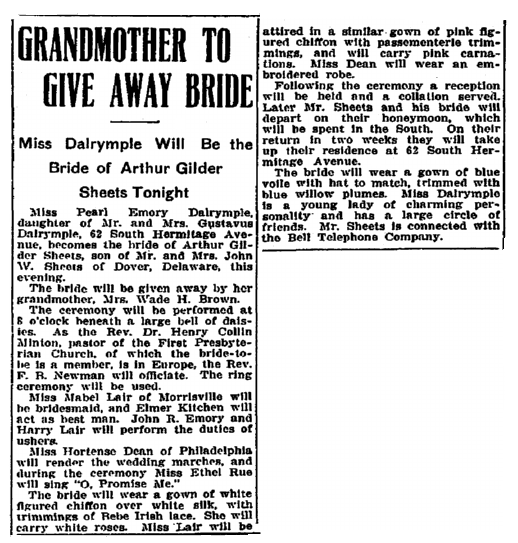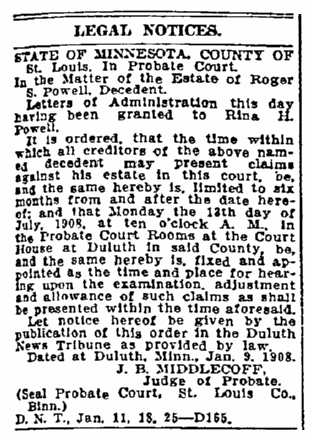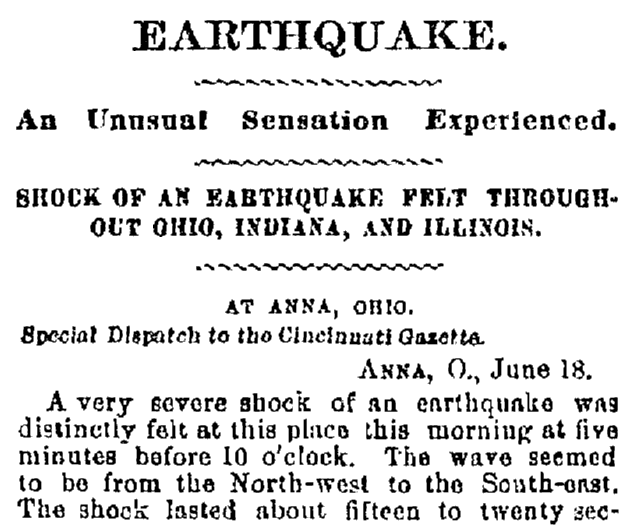Introduction: In this article, Gena Philibert-Ortega shows that searching old newspapers should be a vital part of every genealogist’s family history research. Gena is a genealogist and author of the book “From the Family Kitchen.”
I’m always surprised when family history researchers confess they haven’t searched newspapers for information about their brick wall ancestor. Sure, it’s a good idea to start your research project by searching the census and vital records. In addition to checking government records and official documents, part of your research plan should include newspapers – such as the collection in GenealogyBank’s Historical Newspaper Archives.
Newspapers allow you to verify and add information to your family tree. They often complement the government documents that you are using to verify your ancestor’s event dates and places by adding stories that tell you more about your ancestor’s life and experiences.
Every family history project should involve ongoing newspaper research. Why? Consider the following reasons:
Newspapers Reported On Events as They Happened
While a newspaper article is not an original source for documenting events like a birth, marriage or death, it is an important addition to confirming or finding information. For example, you may not know the exact date of an ancestor’s death, but finding a newspaper obituary or probate notice might provide the clue you need to successfully find that original “official” death certificate.

What types of newspapers articles complement vital records? Birth notices; engagement, wedding and anniversary announcements; obituaries; and probate notices are just a few examples.
Newspapers Reported On Your Ancestor’s Life like No Other Document
There are some limitations to those vital record certificates that you are gathering to document your ancestor’s life. One of the big frustrations is the lack of detail, or even the additional questions they raise. Official government or church documents only provide so much information. They are meant to provide the basics, not tell a story. However, newspaper articles use the details to tell a story. Sure some of that detail may not seem as important, such as “The bride will wear a gown of white figured chiffon over white silk, with trimmings of Irish lace” – but every little detail helps give a deeper picture of your ancestor’s life.
Newspaper articles also provide genealogically relevant gems like relationships and names, occupations, and addresses. Consider this newspaper article about a 1910 New Jersey wedding. Aside from reporting on the wedding, we find the bride’s grandmother’s married name (Mrs. Wade H. Brown) and that she is giving the bride away. The article mentions that the bride is a member of the First Presbyterian Church, and that the groom works for Bell Telephone Company. The bride and groom’s residence at 62 South Hermitage Avenue is also mentioned.
What a goldmine! We now know the name of the bride’s grandmother (and grandfather), the bride’s religion and the groom’s employer, and where the newly married couple will live. Now we can take that information and search censuses, city directories, church records, and other genealogical records.

Newspaper Articles Help You Find Documents
Let’s face it, research is not easy and in some cases it can feel impossible to find a document that you know should be online or on that microfilm reel. Online content might be mis-indexed or simply not where we think it should be. In some cases even trying to find documents in a library, archive, or courthouse may prove unsuccessful.
One friend faced a problem when the probate of her grandfather seemed to not exist at the county courthouse. She knew there was a probate because her father had been the executor of the estate. Unfortunately, this courthouse does not allow patrons to search indexes, microfilm or older files. She had to pay a search fee only to be told that no probate file existed.
So she asked me what to do. I told her to go search the legal notices section of the local newspaper. The probate notice would help “prove” to the courthouse that a probate action had occurred. Sure enough she was able to easily find the probate notice in the newspaper. She showed it to the courthouse clerk who then found the missing file. Without that newspaper proof she would never had been able to obtain the document she needed.

What’s the lesson here? Newspapers provide us with information that leads to other documents about our ancestors.
Newspapers Provide a Look at Our Ancestor’s Community
We don’t take the time to really read our ancestor’s newspaper. As researchers, we tend to be singularly focused on finding mentions of our own ancestor and not much else. I understand too well how addicting it is to enter an ancestor’s name into a search engine and get a result. But it is important to invest some time to read that ancestor’s hometown newspaper to learn more about their life, and what events or activities impacted them.

Don’t forget that your ancestor was part of a community. Their children went to school, they attended a church, and were active members of organizations. Those types of activities generate newspaper articles. So don’t conduct your family history research with blinders on.
One of the suggestions I always make to researchers is to create a timeline. In that timeline you are going to add the cradle-to-grave events of your ancestor’s life – but you should also add events that they may have been a part of or that might have affected them, like a natural disaster or military service during a time of war. These types of events help to fill out the story of their life, and one of the few places to get that type of information is the newspaper.
Newspaper Research Should Start Today
There’s no doubt that newspaper research is an important piece of your genealogical puzzle. Newspapers complement the genealogy documents that we use in documenting our ancestors. Their value lies in recreating the story that is uniquely your family’s.
Are You Attending the RootsTech Genealogy Conference?
GenealogyBank is helping to sponsor the RootsTech conference. If you’re attending, come visit us at booth #523 to discuss genealogy in general, or any specific questions you have about your own family history research.
For more information about RootsTech, visit the website at: http://www.rootstech.org/?lang=eng
Related Newspaper Research Articles:
